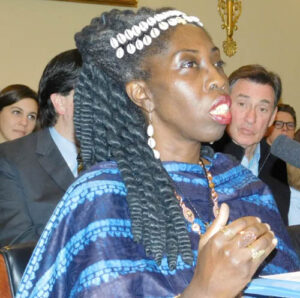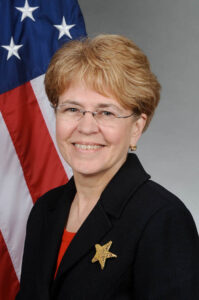Capitol Hill Ocean Week Recap
RCC joined leading experts, policy makers, and nonprofit organizations at Capitol Hill Ocean Week 2022. This year’s event revolved around the theme Sea: The Future. As we reflected on the last 50 years of progress, we also set our sights on the policies and efforts needed to sustain the next 50.
Rachel Carson, a marine biologist herself, would have been pleased to see the emphasis placed on personal connection to the natural world. A common thread between many sessions was understanding that humans are not detached from the environment. Ocean health impacts our health and wellbeing. The ocean can be part of many global solutions—including hunger, poverty, and mitigating the climate crisis. It is also a source of inspiration, healing, and wonder for communities worldwide. When we discuss the future of the ocean, we are also talking about the future of humanity.
Justice and equity were at the forefront of every conversation, a commendable pivot from previous years. The incorporation of traditional indigenous knowledge and speakers at each session highlighted the need to listen to nations who have been stewards of the natural world for centuries. Many panelists, like Queen Quet of the Gullah/Geechee Sea Island Coalition and Francisco Ollervides, Director of Ocean Climate Justice for the Ocean Conservancy, also highlighted the need for local buy-in and collaboration on coastal initiatives and studies. We must prioritize the frontline communities who will be, and already are, the most affected by sea level rise, declining fisheries, poor water quality, and other environmental crises.
Addressing our biggest threats requires inviting diverse perspectives and welcoming new ideas. We heard from people calling for the ocean to have legal ocean rights, advocating for the incorporation of green amendments into the constitution, and promoting the use of art to inspire ocean innovation. We also heard from black women and indigenous women in marine science, who have historically been excluded in decision making and academic circles. To sum up, our solutions need to be interdisciplinary, intergenerational, and interracial.
As we look to the future, Dr. Jane Lubchenco, Deputy Director for Climate and Environment at the White House Office for Science and Technology Policy, spelled out our top priorities nicely. We must protect effectively, produce sustainably, and prosper equitably. We look forward to continuing Rachel Carson’s legacy of communicating the beauty and complexity of the ocean environment and championing its protection.








